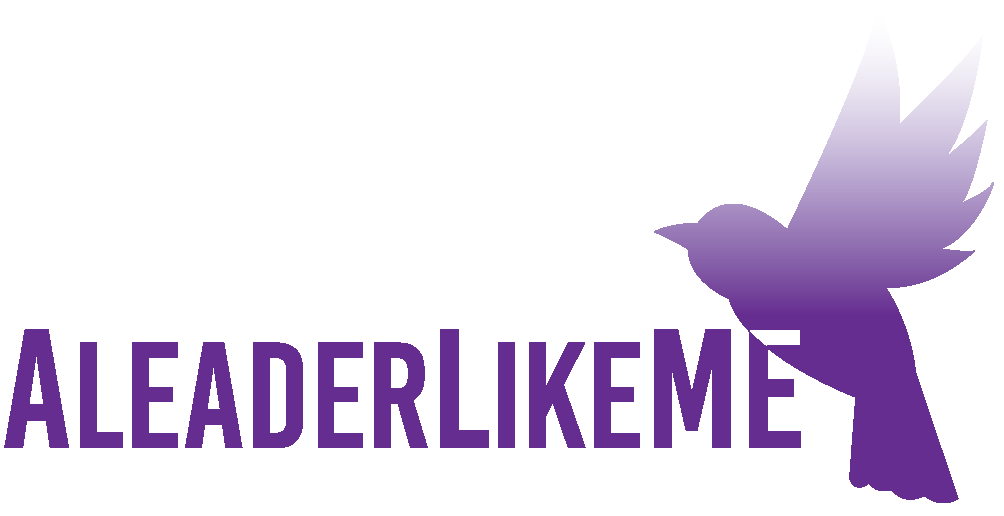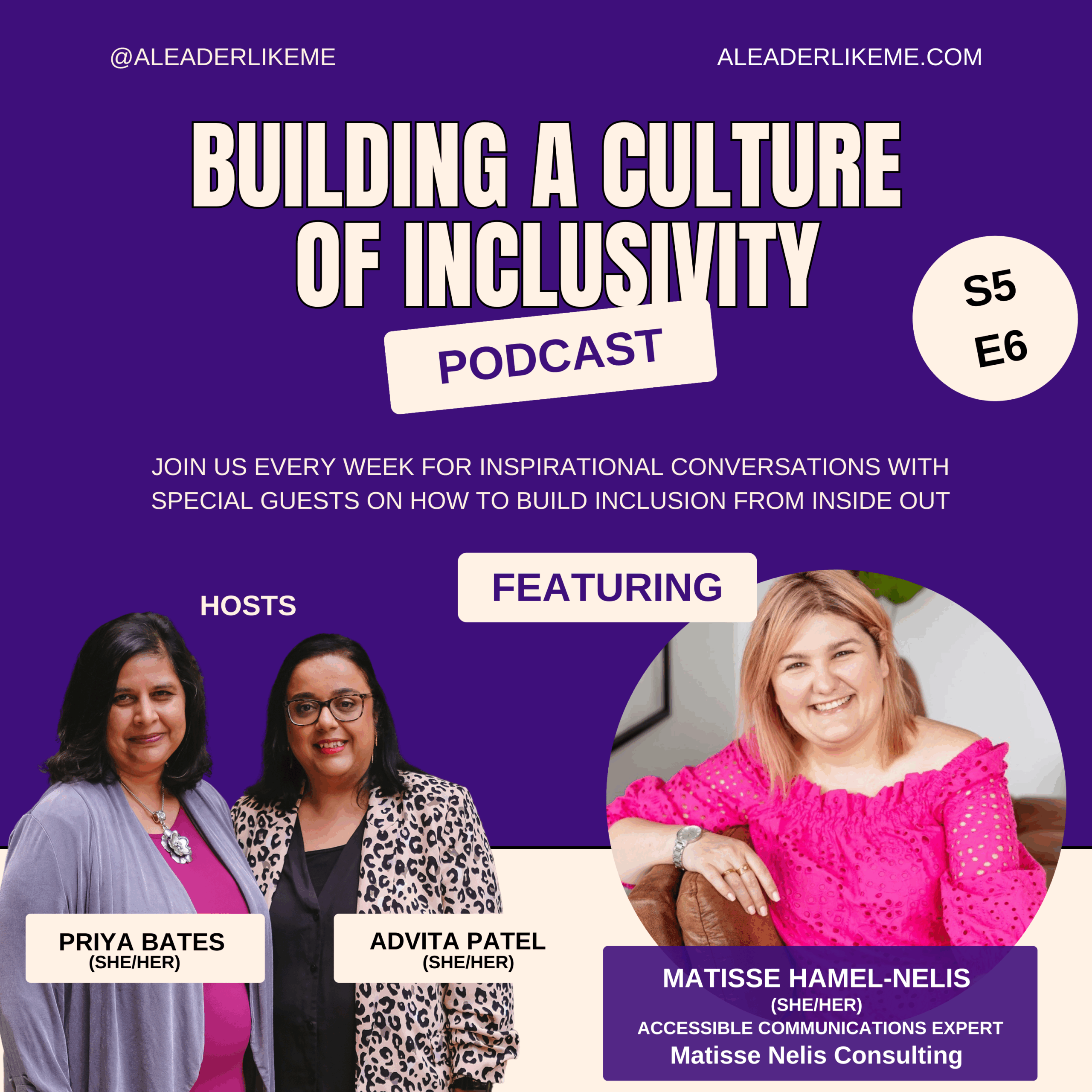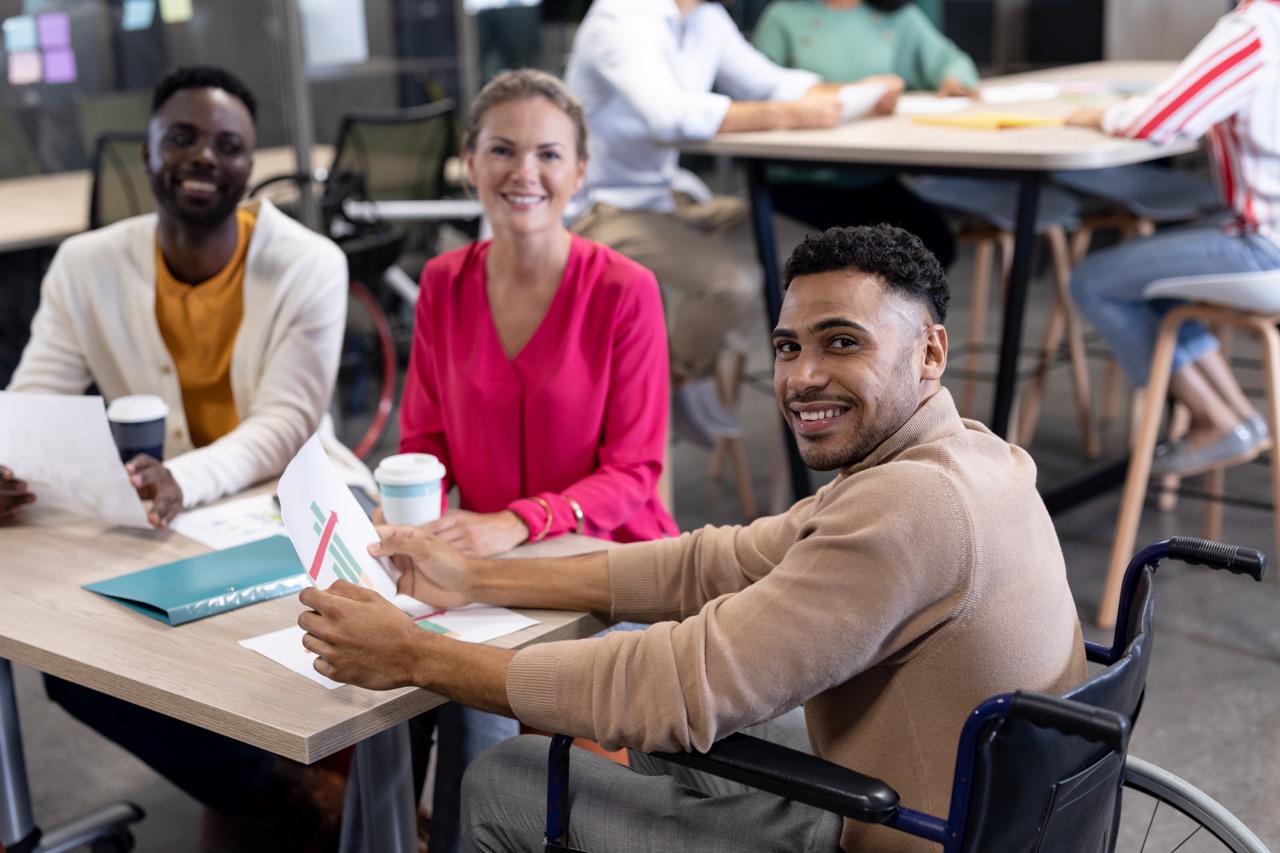When we think about inclusion and accessibility in the workplace or in our communications, too often it’s seen as something ‘for others.’ But what if we reframed that thinking? What if we saw accessibility as essential to good business and better workplaces for everyone?
That’s exactly the kind of reframing Matisse brings to the table. In our latest podcast episode, Matisse shared powerful insights into why inclusive communications are not just a ‘nice to have’—they’re a must-have. And not just for people with disabilities, but for all of us.
Matisse reminded us that when we design for the so-called ‘outliers,’ we actually create solutions that benefit everyone. From transcripts for podcasts that help both those with hearing loss and busy professionals trying to find a key quote, to workplace adjustments initially created for neurodivergent employees that actually make work easier and less exhausting for the entire team.
These are not edge cases. They’re universal benefits.
As Matisse said, accessibility is sometimes treated as an afterthought. But when we think about it from the start, it’s not only more efficient and cost-effective, it also sends a clear message: You’re welcome here.
It was a timely conversation, especially as we see increasing pushback against DEI initiatives in some sectors. Matisse reframed that challenge too—reminding us that this isn’t just about semantics, or acronyms like DEI or IDEA. It’s about doing good business, leading with empathy, and ensuring no one is left out of the conversation.
Her advice for leaders and communicators? Listen. Seek out diverse voices on platforms like LinkedIn. Follow those with lived experience. And, most importantly, take those insights and translate them into action—before the campaign is finished, not after.
Matisse’s upcoming book on accessible communications (launching this October) promises to be a game-changer for communicators, leaders, and businesses who are ready to stop seeing accessibility as optional—and start seeing it as integral.
Because accessibility isn’t about doing more. It’s about doing things right from the start.




